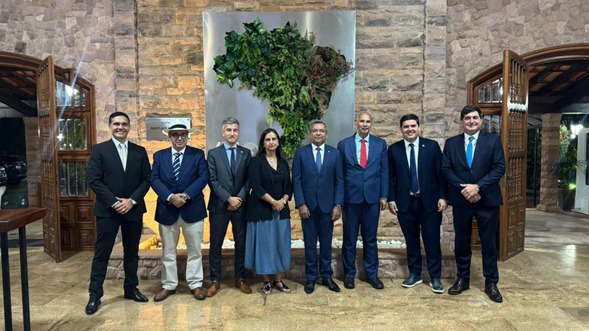Welcome to our fourth edition of 2017!

As we approach the celebration of the 75th anniversary of the Inter-American Institute for Cooperation on Agriculture (IICA), thanks to the visionary efforts of Henry E. Wallace, we have the opportunity to reflect on our history and our future. Certainly the words of Henry E. Wallace who said “..Let us dedicate ourselves anew to the belief that there are extraordinary possibilities in both man and nature which have not yet been realized, and which can be made manifest only if the individualistic yet co-operative genius of democratic institutions is preserved…” continues to be as current today as it was when IICA was established.
A growing and healthy global agricultural sector is critical for the social, political and economic stability of our Region, and although our sector is under increased pressures to provide more food, fibers and fuel to a growing population with less available resources, we could make this happen if we work together.
Our current newsletter continues to share with you information about our institute´s activities and partners. In this occasion, we want to highlight the contributions that IICA has done in advancing the development of organic agriculture in the Region, the strengthening of the sheep value chain in Paraguay and the progress in implementing climate smart agriculture practices in the Caribbean.
We also want to highlight one of our partners, the Foundation for Food and Agricultural Research, for what it represents to the advancement of food and agricultural research in the US. We are sharing this very innovative model of cooperation that brings together the private and the public sector, as an example for other IICA members to study and learn from it.
As in every occasion, please feel free to contact us and share with us your views about our work and to let us know how we can be of better assistance to build an agricultural sector that is truly competitive, sustainable and inclusive.
Sincerely,
Dr. Miguel García-Winder, IICA Representative in the USA, Head of CAESPA
*The opinions expressed in this newsletter are those of the authors and they do not reflect the position of the Institute on the topics presented.
*This post appears in the IICA Delegation in the USA Newsletter – July – August 2017











